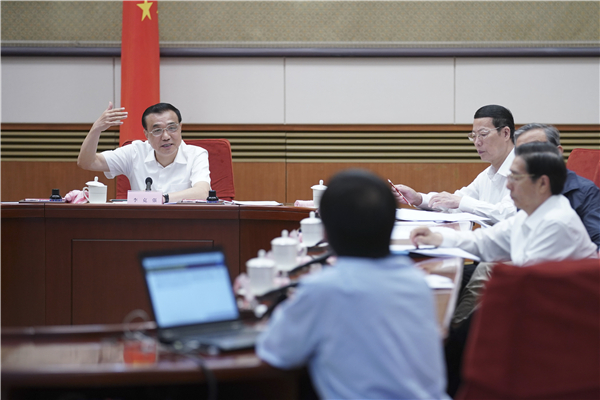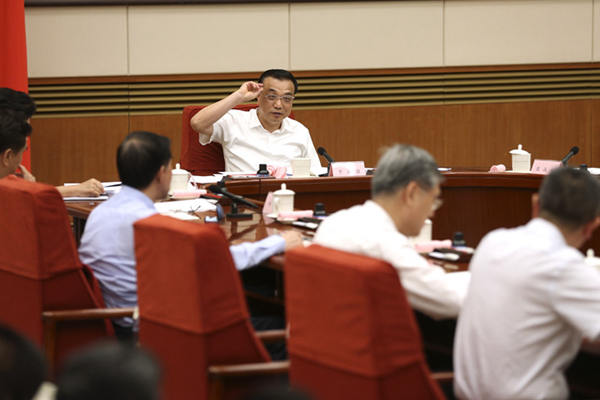
“We are living in a time of an unprecedented new technological revolution. We must seize this opportunity,” Premier Li Keqiang said at a symposium after talking with top scientists on June 22.
The Premier urged to promote innovation and cutting-edge technologies to make the nation stand at the forefront of global technology.
“Our research is still behind some developed countries. But we have our own advantages — collective intelligence and a huge market formed by over 1.3 billion people,” he said.
“We should give full play to the potential of the 1.3 billion Chinese people. They have unimaginable energy.”
As leading researchers in their fields, the four scientists who met with Premier Li had talked about the trend of the new technological revolution, and knowledge about artificial intelligence, quantum information and gene editing.
The latest revolution not only brings about opportunities, but also challenges and uncertainties. It will have inestimable impact on the human community, reshape the global eco-political landscape and overturn some industries, Premier Li said after their presentations.
“We must prepare well for the possible changes,” he said.
The Premier urged the attending ministers to see the big picture of the new technological revolution and make targeting policies.
And, he also added that the government should be inclusive and prudent in managing new technologies, industries and business models.

Stimulate researchers with better rewards
The Premier urged to reform reward mechanism in order to stimulate scientific researchers.
“In fact, human intelligence is most valuable in scientific research. We must give researchers the rewards they deserve!” he said.
“When I visited some colleges and academic institutions, many scientists said that institutional obstacles still exist. Research funds are not flexible,” the Premier said. “If China wants to seize the opportunity, we must reform the system to motivate scientists.”
He also urged enterprises to invest more in research and development and to connect with academic institutions and colleges to create stronger research entities.
He asked attending officials to cut red tape and enhance public services for academia and colleges.
“It will be more useful to break institutional obstacles than billions of investment,” he said.
